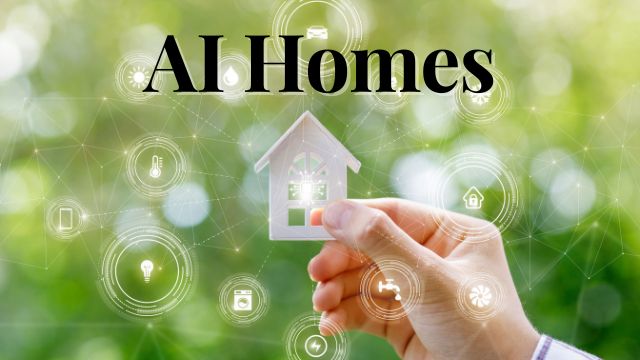
Nuro Technologies
In the not-so-distant past, the concept of a fully automated home seemed like something out of a science fiction novel. However, thanks to the rapid advancements in technology, what was once a mere fantasy has now become a reality. Smart home technology, powered by artificial intelligence (AI), has revolutionized the way we live, transforming ordinary houses into intelligent living spaces. In this blog post, we will delve into the evolution of smart home technology, explore the role of AI in its development, and discuss the impact it has on our daily lives.

The Early Days:
The concept of smart homes first gained traction in the late 20th century, fueled by the imagination of writers and filmmakers. Remember the futuristic home in “The Jetsons” or Tony Stark’s mansion in the “Iron Man” movies? These fictional depictions gave us a glimpse of what our homes could potentially become. However, it wasn’t until the 21st century that smart home technology started to take shape.
The Rise of Connected Devices:
The proliferation of internet connectivity and the advent of the Internet of Things (IoT) laid the foundation for the smart home revolution. With IoT, everyday objects could be connected to the internet, allowing them to communicate and exchange data. This paved the way for a wide range of connected devices, such as smart thermostats, lighting systems, security cameras, and voice assistants.
Enter Artificial Intelligence:
While connected devices added convenience and automation to homes, it was the integration of AI that truly propelled smart home technology to new heights. AI algorithms enabled devices to learn and adapt to users’ preferences, making homes smarter and more intuitive. Voice assistants like Amazon’s Alexa and Google Assistant became the central control hubs, responding to voice commands and executing tasks effortlessly.
Enhancing Daily Life:
Smart home technology powered by AI has had a profound impact on our daily lives. Here are some fascinating facts and statistics that highlight its growth and influence:
According to a report by Statista, the global smart home market is projected to reach a value of $141 billion by 2023.
A survey conducted by Deloitte found that 47% of households in the United States already own at least one smart home device.
Smart home technology is not limited to affluent households. Affordable options and increased accessibility have made it more inclusive across socioeconomic groups.
Energy efficiency is a significant benefit of smart homes. Connected devices can optimize energy consumption, leading to reduced utility bills and a smaller carbon footprint.
Smart security systems provide peace of mind by offering remote monitoring, surveillance, and instant notifications in case of any unusual activity.
Smart appliances, such as refrigerators and washing machines, can automate tasks and even reorder supplies when needed.
Smart lighting systems can adjust brightness and color temperature to create desired moods and conserve energy.
The evolution of smart home technology, driven by AI, has transformed our houses into intelligent living spaces. What was once a figment of our imagination has become an integral part of our lives. With the rapid growth of the smart home market and the increasing adoption of connected devices, the future of our homes is set to become even smarter and more interconnected. Embracing this technology offers us convenience, energy efficiency, security, and an enhanced quality of life. As AI continues to advance, we can only imagine the endless possibilities that lie ahead in the world of smart